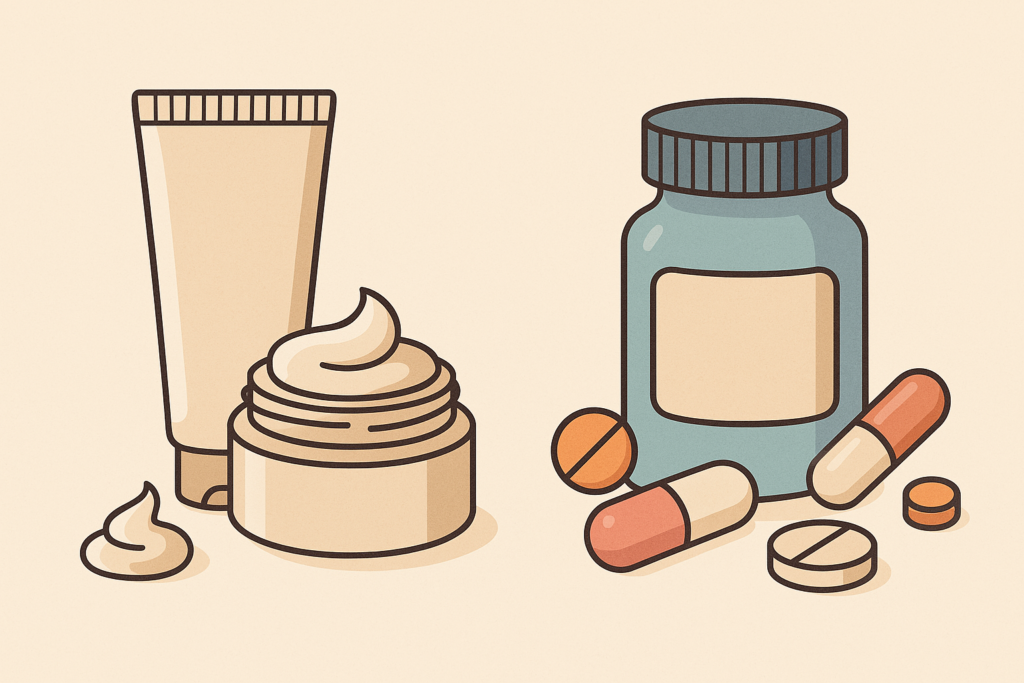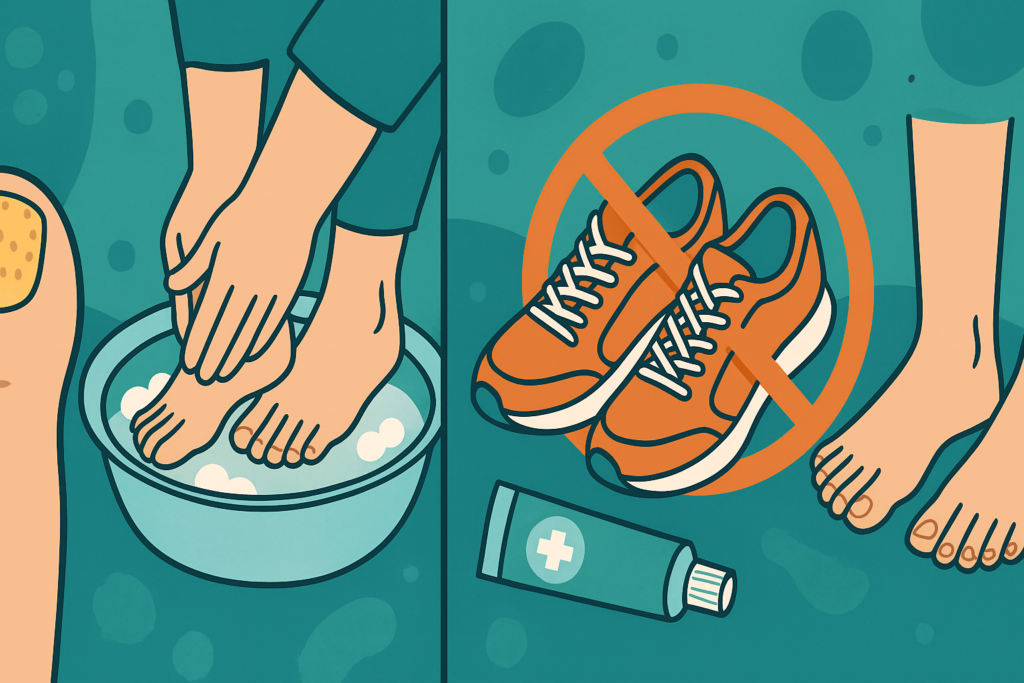
Ever had itchy, red patches on your feet or thick, yellow nails that just won’t look normal? You’re not alone. Fungal skin and nail infections are super common, from kids to grandparents, athletes to office workers. The good news? There are simple, proven ways to treat them and get back to feeling comfortable in your skin.
Let’s break down the best antifungal medications, how they work, and which one might be right for you.
What Are Antifungal Medications?
Think of antifungal meds as your backup squad against the germs that mess up your skin or nails. You’ll find them as creams, sprays, nail paints, or even little pills. Some you can grab right off the pharmacy shelf; others need a prescription. The right choice depends on your infection, where it is, and how stubborn it is.
Two Main Types: Creams And Pills

You’ve got options, and it boils down to two main types:
Creams, Sprays, And Nail Solutions
Most folks start with a cream or spray. Why? They’re safe, easy, and you don’t need a doctor’s note for many of them.
Popular picks you’ll see in most drugstores:
- Clotrimazole: Great for athlete’s foot, ringworm, and jock itch.
- Miconazole: Works well for those same problems. Often used for stubborn skin spots.
- Efinaconazole & Ciclopirox: Special nail solutions, made for fungus hiding under thick nails.
If your skin or nail problem is mild, a cream could clear it up in just a week or two. If you live somewhere hot and humid, think Miami or Houston, fungus loves that weather, so it’s smart to keep a tube on hand!
Pills For Stubborn Infections
When creams don’t do the trick, your doctor might give you a pill. These work from the inside out, reaching deep-down fungus that creams can’t touch.
The big names:
- Itraconazole: Super popular for nail fungus (the thick, ugly stuff). Taken once a day for a few months. Used for skin and nail fungus, especially if you have yeast or mold types.
- Fluconazole (Flumet 400 mg): The backup plan if you can’t take the others.
These pills do a great job, but you’ll need to check in with your doctor. They may want to test your liver (pills can mess with it), and they’ll check for any medicine conflicts.
Cream Or Pill: Which Is Best?
Here’s the quick answer:
- For skin infections like athlete’s foot or ringworm? Grab a cream.
- For thick or deep nail infections? Pills are usually stronger and get better results.
A big study found that itraconazole pills clear up nail fungus for about 3 out of 4 people after 12 weeks. That’s pretty impressive. Special nail lacquers are an option if you can’t take pills, but you have to be patient; they take a long time to work.
Safety: What To Know Before You Start
Most creams are gentle, maybe a little redness or stinging, but that’s it. Pills can be stronger, so doctors check your blood first. If you’re pregnant, breastfeeding, or have a lot of allergies, ask your doctor before you use anything.
How Long Will It Take?
- Creams for skin fungus: Usually work in 1 to 4 weeks.
- Pills for nail fungus: Often need 2 to 3 months.
- Nail paints: Up to a year of daily use.
Don’t quit early, even if you look better. Fungus loves to hide, and stopping too soon means it might come back.
What About Natural Or Home Remedies?
Some people swear by tea tree oil or Vicks VapoRub for small nail spots. Results are mixed; sometimes they help, sometimes not. For real results, especially with thick or painful nails, stick with what doctors recommend.
If you want to try a natural remedy, chat with your doctor first to make sure it’s safe for you.
How To Stop Fungus From Coming Back

A few simple steps can save you a lot of trouble:
- Keep your feet dry, and change socks if they get sweaty.
- Use sandals in public showers and pools.
- Don’t share nail clippers or shoes.
- Air out your shoes, fungus hates dry, fresh air.
- In places with lots of rain or humidity, dry off well after showers.
Share these tricks with your family and friends; they work for everyone!
FAQs
1. What Works Best For Nail Fungus?
Itraconazole pills get the best results for most people, usually within three months.
2. Can I Just Use A Cream For Nail Fungus?
Creams help with skin, not thick nails. For nails, you usually need nail polish or a special nail solution.
3. Is It Okay To Treat Fungus At Home?
If it’s just a small patch on your skin, go for it. For nail problems or if you have diabetes, see a doctor.
4. How Much Does Treatment Cost?
Generic antifungal creams are affordable, $10–$20 in the US. Pills range from $20–$100 per month, sometimes covered by insurance.
5. Are Antifungals Safe For Kids?
Most skin creams are, but always check with your doctor first.
Need Help? Take The Next Step!
Fungal infections are nothing to be embarrassed about. The right treatment is easy to find, and there’s no reason to wait. Pop into your local pharmacy or ask your doctor for the best option in your area, especially if you’re in a high-humidity spot like Houston, Miami.

